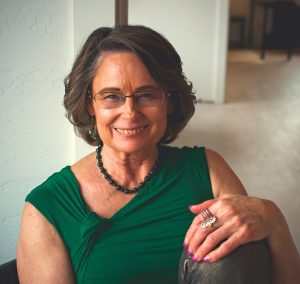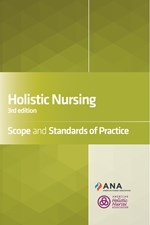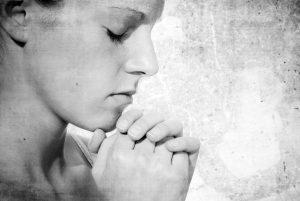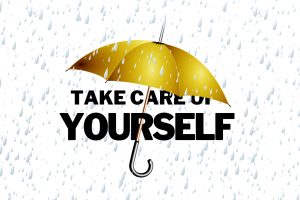Submitted by deonne wright RN
OHNA Communication | Conference Coordinator
Founding Board Member

I was raised on a farm more than half a century ago by staunch, fundamentalist Christian parents. I was also the eldest of their twelve children. As I look back I see how those three elements formed my concept of what ‘self-care’ meant. I grew up with teachings that guided me to serve “God” and everyone else above all else. To make my own needs more important than the needs of others was considered selfish.
I am stepping into a new paradigm of self-care after going through burnout twice, coming to the edge of nervous collapse, and becoming physically incapacitated at different times in my life. It wasn’t until my physical health failed me completely that I gained the perspective of self-care being a non-negotiable priority. Such a dramatic change takes a conscious effort, but it is necessary since only the self-nourished can nourish others. The unfortunate reality is many of us operate from this outdated concept. As nurturing care providers we cannot afford such a perspective.
The American Holistic Nurses Association (AHNA) has researched, established, published, and frequently updated their Scope and Standards of Practice over the years of their existence. This publication includes the principles that are foundational to holistic nursing practice. They are presented in five categories: Person, Healing/Health, Practice, Nursing Roles, and Self-Care. The principles are broken down further into Core Values. The fifth addresses Holistic Nurse Self Care. (Carla Mariano, 2007) Becoming acquainted with these holistic nursing principles and core values has played a big part in helping reset my beliefs, empowering me to step into a new Self-Care Paradigm.
The most meaningful statements made by AHNA for my growth are as follows:
- Holistic nurses value themselves and mobilize the necessary resources to care for themselves.
- Nurses cannot facilitate healing unless they are in the process of healing themselves.
- Holistic nurses strive to achieve harmony/balance in their own lives and assist others to do the same.
- [nurses] create healing environments for themselves by attending to their own well-being, letting go of self-destructive behaviors and attitudes, and practicing centering and stress reduction techniques.
These weighty statements gave me the permission I needed to make serving my personal needs for relaxation, restoration, and recovery top priority. I am committed to being a nurse with the capacity to facilitate healing for others, so there was no other path for me.
In January 2014, I set an intention for Radical Self-care and began the work of changing my priorities. The intention was reinforced at a deeper level in November 2018 when health challenges incapacitated me. I found myself looking at a future without the ability to serve humanity in the way I know I’m here to do.
The deeper healing began by engaging appropriate allopathic experts; I did the required testing and followed the resulting guidance/instructions. Because I believe our physical health is a manifestation of our spiritual, mental, and emotional health, I began working with a bio-energy practitioner who works in those realms as well as the physical domain. I have experienced massive changes as a result of his skills – accompanied by my own independent deep dives that ‘mined’ the openings created by his work. Both have had a tremendous influence on the restoration of my health.
I consider myself extremely blessed to have a sister who is an advanced registered nurse practitioner (ARNP) and a clinical Homeopathic Master. There is no question in my mind that working with her and taking her recommended homeopathic remedy has had a tremendous impact on my recovery.
 I’m more grateful than I can express for the community of loving friends and family who have supported me through this time. I asked them to create a vortex for my health through the power of prayer. Larry Dossey, MD has researched and published extensively about the healing power of prayer. (Larry Dossey, 2013) It was a modality I wanted to incorporate. A huge vortex was created for me at the time of my cardiac surgery. In spite of the cardiac surgeon stating he hadn’t helped me, my heart is returning to a nearly normal function as some who are personally connected to me continue their prayers and meditations for me.
I’m more grateful than I can express for the community of loving friends and family who have supported me through this time. I asked them to create a vortex for my health through the power of prayer. Larry Dossey, MD has researched and published extensively about the healing power of prayer. (Larry Dossey, 2013) It was a modality I wanted to incorporate. A huge vortex was created for me at the time of my cardiac surgery. In spite of the cardiac surgeon stating he hadn’t helped me, my heart is returning to a nearly normal function as some who are personally connected to me continue their prayers and meditations for me.
I bought a juicer and began including juicing in my diet. I started an Intermittent Fasting regimen and have lost the fifteen pounds I’ve been trying to lose for years. I chose physical therapy over a pain clinic referral and have now recovered the strength and endurance I felt hopeless of regaining. My pain levels are at a tolerable level,  and my state of health is better than I thought reasonable.
and my state of health is better than I thought reasonable.
In this new Self-care Paradigm I give myself 100% permission to rest when I’m tired, eat when I’m hungry, enjoy the outdoors when I need to, exercise when I’m able, take time to creatively express myself with whichever talent wants to be expressed in the moment, and to say ‘No’ when saying ‘Yes’ conflicts with my self-care priorities. I didn’t do this all at once – that would have been overwhelming. I started with one or two changes I could commit to and easily manage. The next changes were not so difficult. Over time they’ve added up to a new way of life which I have back in a way I couldn’t see happening a year ago. I’m seeing clients again and am experiencing the capacity to facilitate healing; now it comes from a much deeper level and a higher perspective.
There was a time in my nursing career I had no knowledge of Holistic Nursing as a philosophy or a defined practice. I am so grateful to the nurse manager who introduced me to the specialty in 1995. It has changed my life, helping me create a new belief system about my value, what it means to be a nurturing healer, and how to make it happen. Living by holistic nursing principles can do the same for you.



